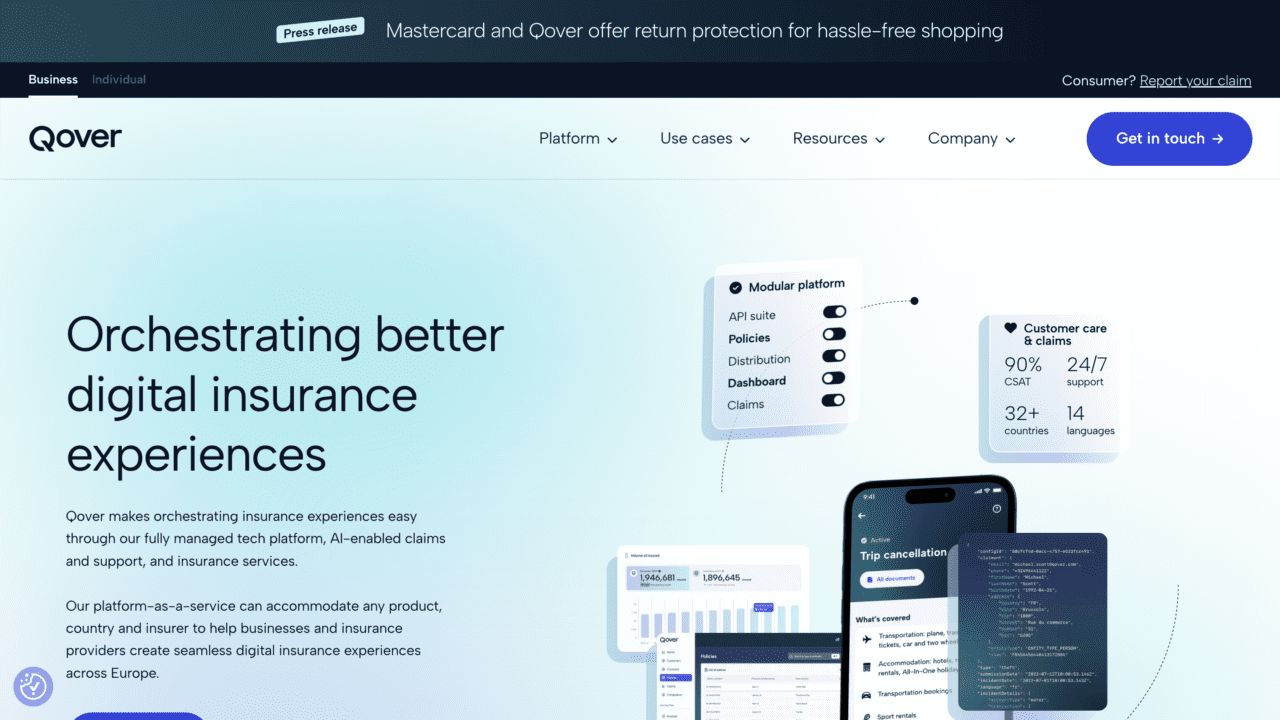
- Lunar introduced Moonrise, a standalone enterprise payments offering to help organizations scale in the Nordic region’s notably complex payments ecosystem.
- Lunar expects that the BaaS market will grow 3.3x to €100 billion in five years.
- Lunar anticipates that Moonrise will help to lower barriers to entry for companies operating in the Nordics, which will not only foster innovation and competition, but also help to offer consumers better services and pricing options.
Nordic challenger bank Lunar launched a new, enterprise payments offering this week. The standalone product, called Moonrise, aims to simplify financial connectivity for payment businesses looking to scale in the Nordics.
Moonrise helps fintechs, challenger banks, and global payments providers navigate the Nordic payments landscape. Denmark, Norway, and Sweden each have unique clearing systems and infrastructure requirements, which creates a complex payments environment. “By breaking down these barriers,” the company’s blog post explained, “we’re creating new opportunities for players who want to innovate and compete in a region traditionally dominated by legacy institutions.”
Moonrise’s API builds on Lunar’s existing infrastructure, which currently processes over 10,000 transactions daily and supports $5.3 billion (€5 billion) in transaction volume.
“The transition to Moonrise reflects Lunar’s strategic focus on growth and innovation,” the blog post said. “By taking the first steps towards creating a standalone entity, we’re giving our enterprise payments division the agility and resources it needs to thrive while also allowing our retail banking arm to continue its successful trajectory.”
Lunar launched in 2015 as a digital bank catering to both retail and commercial clients. The Denmark-based company received its banking license in 2019 and offers personal checking accounts with debit cards, youth accounts, in-app PFM tools, an investing platform, and a BNPL tool that can be retroactively applied to purchases. On the commercial side, Lunar offers business bank accounts, automated bookkeeping, cash flow analytics, expense management tools, loans, insurance, and more.
Launching Moonrise will allow Lunar to pursue the BaaS market, which is expected to reach 100 billion Euros, growing 3.3x over the next five years. Structuring Moonrise as a separate entity will allow both companies to grow in their own direction, without straining the resources of either one.
Lunar recognizes the potential that the BaaS market has to drive innovation and competition in the payments world. By nature, BaaS tools lower the barriers to entry, especially in a challenging market like the Nordics. This will help to increase competition and create an environment in which legacy institutions must innovate to keep pace.
Photo by Kym MacKinnon on Unsplash











